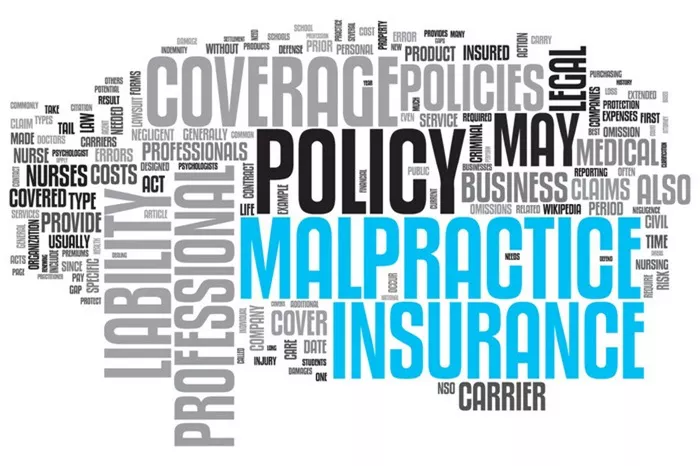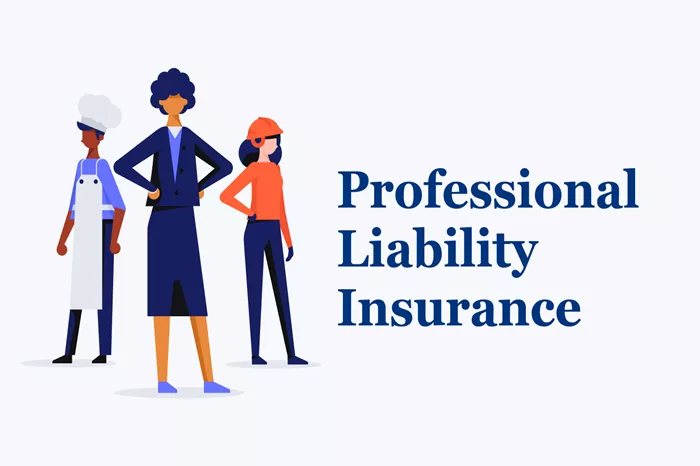In today’s dynamic and often unpredictable business landscape, small businesses are increasingly exposed to a variety of risks. One significant area of risk is the potential for professional liability claims. To mitigate these risks and safeguard your business, obtaining the right professional liability insurance is essential. This article explores the best professional liability insurance options for small businesses, highlighting key factors to consider and top insurance providers to help you make an informed decision.
Understanding Professional Liability Insurance
Professional liability insurance, also known as errors and omissions (E&O) insurance, is designed to protect professionals from claims alleging negligence, errors, or omissions that occur in the course of providing professional services. This insurance is crucial for businesses that offer services or advice to clients, as it covers legal costs, settlements, and damages resulting from such claims.
Why Small Businesses Need Professional Liability Insurance
Small businesses are not immune to the risks associated with professional liability. Here are some key reasons why this insurance is vital:
Protection Against Legal Claims
Professional liability insurance provides coverage for legal expenses and settlements resulting from claims of negligence or inadequate work.
Financial Security
Even a single claim can lead to significant financial losses. Professional liability insurance helps cover these costs, ensuring your business remains financially secure.
Client Requirements
Many clients and contracts require businesses to carry professional liability insurance. This coverage can be essential for securing and maintaining client relationships.
Key Features to Look for in Professional Liability Insurance
Selecting the right professional liability insurance involves evaluating several key features:
Coverage Limits
Per-Claim Limits: The maximum amount the policy will pay for a single claim.
Aggregate Limits: The total amount the policy will pay for all claims during the policy period.
Exclusions
Common Exclusions: Claims related to intentional wrongdoing, fraud, or prior knowledge of a claim are often excluded.
Industry-Specific Exclusions: Some policies may have exclusions specific to certain professions or industries.
Deductibles
High Deductibles: May lower your premium but could result in higher out-of-pocket costs if a claim occurs.
Low Deductibles: Higher premiums but lower costs when filing a claim.
Claims-Made vs. Occurrence Policies
Claims-Made Policies: Provide coverage for claims made during the policy period, regardless of when the incident occurred.
Occurrence Policies: Cover incidents that occur during the policy period, even if the claim is made after the policy has expired.
Top Providers of Professional Liability Insurance for Small Businesses
Choosing the right insurance provider is crucial. Here are some top providers known for their comprehensive coverage and excellent customer service:
1. Hiscox
Hiscox is renowned for its tailored professional liability insurance, catering to various professions including consultants, architects, and IT professionals.
Flexible Terms: Offers customizable coverage options.
Competitive Pricing: Known for providing affordable premiums.
Strong Customer Support: Provides access to a dedicated support team.
2. The Hartford
The Hartford offers extensive professional liability insurance with a strong focus on customer service and risk management.
Comprehensive Coverage: Includes protection against a wide range of professional risks.
Risk Management Resources: Provides access to tools and resources to help manage risks.
Exceptional Claims Support: Known for efficient and effective claims handling.
3. CNA
CNA provides customizable professional liability insurance, designed to meet the needs of various small businesses.
Customizable Policies: Allows for tailored coverage options.
Industry Expertise: Offers specialized coverage for different professions.
Access to Risk Management Tools: Provides resources to help mitigate risks.
4. Travelers
Travelers is known for its robust professional liability insurance policies, addressing the unique needs of small businesses.
Variety of Coverage Options: Offers a range of policy options to suit different business needs.
Strong Claims Support: Provides comprehensive claims management services.
Additional Benefits: Includes access to a network of legal and risk management experts.
5. Chubb
Chubb is recognized for its high-quality professional liability insurance and personalized service.
High-Quality Coverage: Offers extensive protection against professional risks.
Personalized Service: Provides tailored insurance solutions and expert support.
Network of Experts: Access to a network of legal and risk management professionals.
How to Choose the Right Professional Liability Insurance for Your Small Business
Selecting the most suitable professional liability insurance requires careful consideration. Follow these steps to ensure you find the best coverage for your business:
Assess Your Business Risks
Identify Potential Risks: Consider the specific risks associated with your profession or industry.
Evaluate Claim Scenarios: Think about the types of claims that might arise and the potential financial impact.
Compare Multiple Providers
Obtain Quotes: Request quotes from several insurance providers to compare coverage options and pricing.
Evaluate Policy Terms: Review the terms and conditions of each policy to determine the best fit for your business.
Review Policy Details
Coverage Limits: Ensure that the policy limits are sufficient for your business needs.
Exclusions: Understand what is not covered and how it might impact your coverage.
Deductibles: Compare the deductibles and choose one that aligns with your financial situation.
Consult with an Insurance Broker
Expert Advice: An insurance broker can provide valuable insights and help you navigate the complexities of professional liability insurance.
Policy Selection: A broker can assist in finding the best policy for your specific needs and budget.
See Also: Top 5 Best Nursing Liability Insurance
Benefits of Investing in Professional Liability Insurance
Investing in professional liability insurance offers several key benefits for small businesses:
Financial Protection
Coverage for Legal Costs: Helps cover legal expenses associated with claims.
Settlement Costs: Provides financial support for settlements or judgments.
Enhanced Client Trust
Demonstrates Professionalism: Shows clients that you are committed to managing risks.
Strengthens Client Relationships: Helps build trust and confidence with clients.
Peace of Mind
Reduces Worry: Knowing you have coverage in place allows you to focus on your business operations.
Business Continuity: Helps ensure that your business can continue operating despite potential claims.
Conclusion
Choosing the best professional liability insurance for your small business is a critical decision that can significantly impact your financial stability and overall success. By understanding your business’s specific risks, comparing insurance providers, and carefully reviewing policy options, you can find coverage that offers the protection and peace of mind you need. With the right professional liability insurance in place, you can confidently navigate the challenges of running a small business and focus on achieving your long-term goals.
FAQs
1. What is professional liability insurance, and why do small businesses need it?
Professional liability insurance, also known as errors and omissions (E&O) insurance, provides coverage for claims alleging negligence, errors, or omissions in the professional services your business offers. Small businesses need this insurance to protect against the financial risks associated with lawsuits and claims made by clients. Even if your business operates with the highest standards, mistakes or misunderstandings can occur, leading to potential legal claims. This insurance helps cover the legal costs, settlements, or damages that may arise from such claims. By having professional liability insurance, small businesses can safeguard their financial stability and ensure that they can continue operations despite legal challenges. It also helps in maintaining client trust, as clients are more likely to engage with businesses that have adequate insurance coverage.
2. What types of claims are covered by professional liability insurance?
Professional liability insurance typically covers claims related to professional negligence, errors, or omissions in the services provided. This can include allegations of providing incorrect advice, failing to deliver promised services, or errors that lead to financial loss for a client. Coverage can extend to legal costs, settlements, and damages awarded to claimants. However, policies may vary, so it’s important to review the specific terms and conditions of your policy to understand the scope of coverage. Common exclusions might include intentional misconduct, criminal acts, or claims arising from prior knowledge of a problem. Understanding what is covered and what is excluded helps ensure that you have adequate protection for your specific business needs.
3. How do I determine the right coverage limits for my professional liability insurance?
Determining the right coverage limits involves assessing the potential risks and financial exposures associated with your business. Consider factors such as the size of your business, the nature of the services you provide, and the typical claim amounts in your industry. You should evaluate the maximum amount you could potentially be liable for in a worst-case scenario and select coverage limits that offer adequate protection. Consulting with an insurance broker can provide valuable insights into appropriate coverage limits based on your business’s risk profile. It’s also wise to review your coverage periodically and adjust limits as your business grows or changes. Ensuring that your coverage limits are sufficient can prevent significant financial strain in the event of a claim.
4. What is the difference between claims-made and occurrence policies?
Claims-made policies cover claims that are made during the policy period, regardless of when the incident occurred. This means that as long as the claim is made while the policy is in effect, it will be covered, even if the incident happened before the policy started. Occurrence policies, on the other hand, cover incidents that occur during the policy period, even if the claim is made after the policy has expired. This provides coverage for events that happened while the policy was active, regardless of when the claim is filed. Each type of policy has its advantages, and the choice between them depends on your business’s needs and risk profile. Claims-made policies might be more affordable but require continuous coverage, while occurrence policies provide long-term peace of mind. Consulting with an insurance expert can help you choose the policy type that best fits your business.
5. Are there any industry-specific considerations for professional liability insurance?
Yes, professional liability insurance can vary significantly based on the industry in which your business operates. Different professions face unique risks and challenges, which can affect the types of claims and coverage needed. For example, medical professionals may require malpractice insurance, while consultants and IT professionals may need coverage for errors and omissions related to advice or technical work. Industry-specific policies can provide tailored coverage to address the specific risks associated with your profession. It’s important to choose an insurance provider that offers policies designed for your industry to ensure that you have the right level of protection. Consulting with an industry expert or insurance broker can help you identify the best coverage options for your specific field.
6. How can I find the best professional liability insurance for my small business?
Finding the best professional liability insurance involves several key steps. Start by assessing your business’s specific risks and needs, including the types of services you provide and the potential legal exposures. Obtain quotes from multiple insurance providers






















